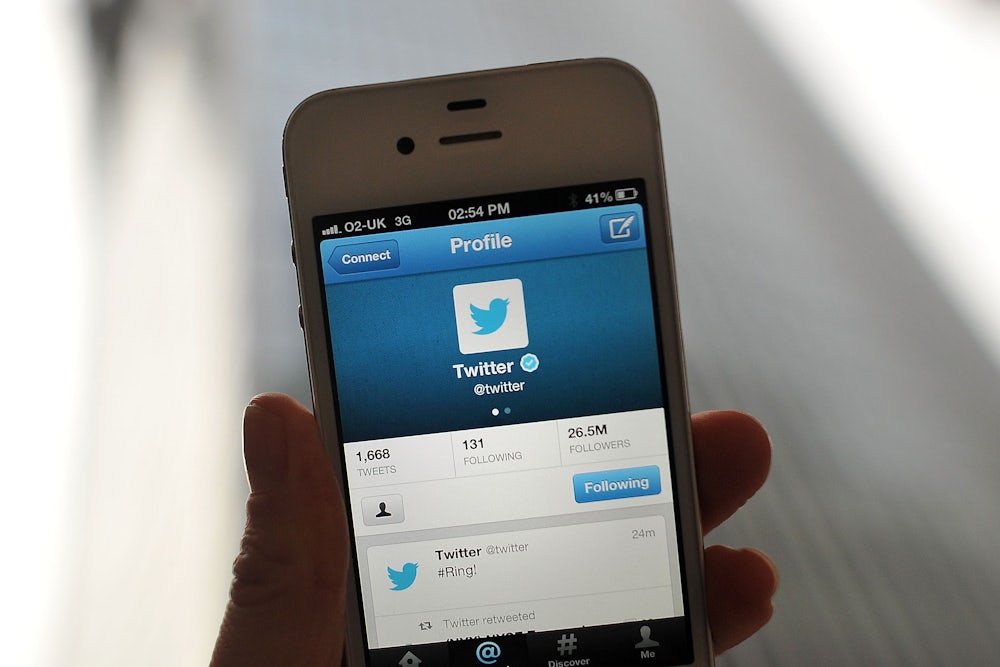The tech press is obsessed with calling things dead. So now that
it’s become abundantly clear Twitter is flailing—execs are leaving, and the company
is unable to sustain growth, or focus on making
its product better for users—pundits have begun to lament the End of Twitter. Twitter’s
troubles seem like they’ll eventually grind down the company’s status and
popularity: The incredible ease and ubiquity
of targeted abuse, the noisiness of the timeline, the difficulty of introducing
newcomers to the service, and the ham-fisted attempts at new features
make Twitter feel like a service intent on driving both loyal and new users
away. (This week saw the company attempt to fix onboarding and conversation.)
The situation, however, isn’t as dire as the commenters make it seem: On a purely financial level, Twitter still has enough money to run the service as is for the next 412 years. And most importantly, Twitter is still the best answer to the question “What’s happening in the world right now?” Though some argue that other social platforms like Facebook or Snapchat could conceivably break Twitter’s hold on immediacy, it’s hard to imagine that happening in a simple way. After all, can you imagine turning to Facebook and finding breaking reports from the BBC interspersed with messages from Grandpa and updates from that restaurant you like?
Twitter remains the best way to connect to what is happening in the moment. To be clear, this is not because there is something inherently great about Twitter the product; it’s because the company pioneered a cultural form: the real-time, public information network.
But let’s back up. As a sociological concept, cultural forms are identifiable parts of culture that transcend their origins to become part of society. Written poetry, for example, evolved from an oral tradition of singing songs and telling stories into a way to frame and share ideas and feelings. The nature of poetry changed in reaction to the times; early English poetry was almost always Christian in nature, for example, while Romantic poetry turned inward to reflect on the self and its place in a changing, industrializing world. A form reflects and shapes the world.
In the twentieth and twenty-first centuries, cultural forms became more intricately linked to large-scale technology—which means that they were almost always products first. Consider video games: Despite the fact they are now undoubtedly more than just consumer items, the material needs of developing and distributing cartridges and disks before the internet meant that large corporations had to be involved. The realities of capitalism mean that extricating the aesthetic form from the product had to come later.
The same goes for social media. The social network—first with Friendster, then with MySpace, and finally with Facebook—was created first as a business, but then became adopted as a category of cultural function. Twitter is similar.
As social as Twitter can be, though, it isn’t really a social network, at
least not in the same way Facebook is; it is, rather, a real-time information network
with a social component—a place where people go to talk about what is happening
and what they’re thinking right now. That’s why Twitter’s defining feature is
not the individual tweet, but its near-real
time stream of messages. Twitter externalizes and
publicizes communication and speech, turning the resulting words into an aesthetic object of public discourse.
Maybe, then, saying Twitter will die is a bit like saying a newspaper will fold—sure, the company will be gone, but the cultural necessity of journalism dictates that someone will still make news. Appropriately, Slack—the team chat and collaboration app that has exploded in popularity, worth more than a billion dollars—could take Twitter’s place. Recent rumors suggest that it is working on a broadcast addition to its app, which would allow people to send out messages to the public while retaining private channels. It would be a logical step—especially in terms of Slack’s business interests—but it would also further suggest that Twitter, so to speak, isn’t unique to Twitter.
There are other effects of that line of thinking, too: If private companies currently dominate these new cultural platforms, for example, then there may also be a place for public versions. It might be easier to to enforce a more aggressive no-harassment policy on a publicly- or user-owned version of such a network. It would also perhaps be less alienating.
That’s why it doesn’t matter if Twitter dies. At this moment in history, we are creating new structures, new aspects of culture—and in the long run, Twitter, Facebook, and others will give way to cultural forms that are much longer lasting.
